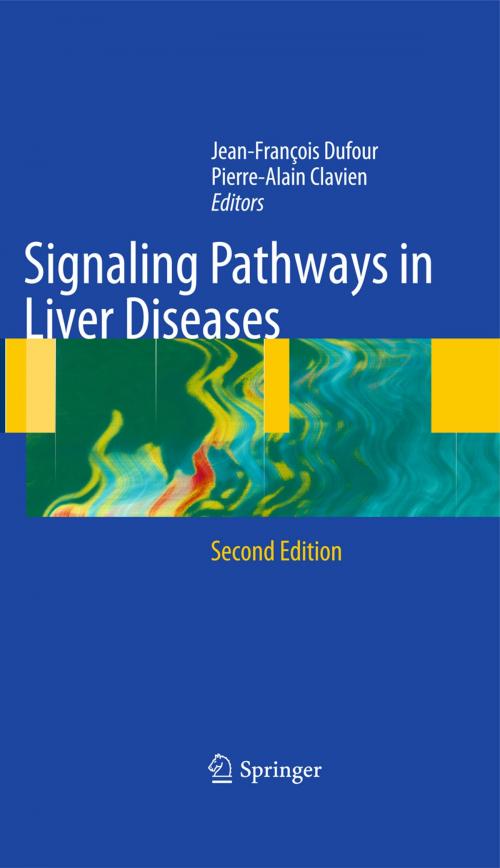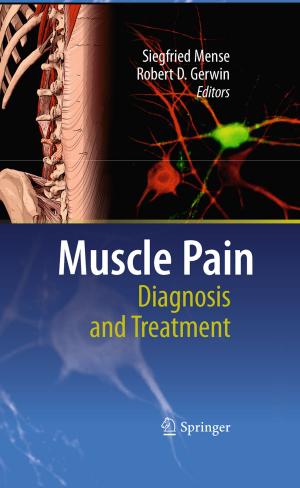Signaling Pathways in Liver Diseases
Nonfiction, Health & Well Being, Medical, Specialties, Internal Medicine, Gastroenterology, Surgery| Author: | ISBN: | 9783642001505 | |
| Publisher: | Springer Berlin Heidelberg | Publication: | December 1, 2009 |
| Imprint: | Springer | Language: | English |
| Author: | |
| ISBN: | 9783642001505 |
| Publisher: | Springer Berlin Heidelberg |
| Publication: | December 1, 2009 |
| Imprint: | Springer |
| Language: | English |
Signaling Pathways in Liver Diseases, 2nd edition focuses on signaling pathways which are particularly important in liver diseases. Recent progress brought hepatology to new frontiers. The increasing frequency of surgery on steatotic and cirrhotic liver obliges liver surgeons and hepatologists to understand the molecular mechanisms at play in these situations and how they can be influenced. Better comprehension of the cellular mechanisms participating in liver regeneration, hepato-cellular apoptosis and ischemia/reperfusion inquiry is mirrored by a dramatic increase in complexity. The number and scope of publications is intimidating and difficult for busy individuals to extract a coherent framework. This book will serve as a source of information facilitating the reading of the literature and the planning of trials. Translational medicine implies knowledge of the molecular targets for novel therapeutic strategies. It will furthermore stimulate more research and lead to better exchange between the laboratory, the clinical ward and the operation room.
Signaling Pathways in Liver Diseases, 2nd edition focuses on signaling pathways which are particularly important in liver diseases. Recent progress brought hepatology to new frontiers. The increasing frequency of surgery on steatotic and cirrhotic liver obliges liver surgeons and hepatologists to understand the molecular mechanisms at play in these situations and how they can be influenced. Better comprehension of the cellular mechanisms participating in liver regeneration, hepato-cellular apoptosis and ischemia/reperfusion inquiry is mirrored by a dramatic increase in complexity. The number and scope of publications is intimidating and difficult for busy individuals to extract a coherent framework. This book will serve as a source of information facilitating the reading of the literature and the planning of trials. Translational medicine implies knowledge of the molecular targets for novel therapeutic strategies. It will furthermore stimulate more research and lead to better exchange between the laboratory, the clinical ward and the operation room.















